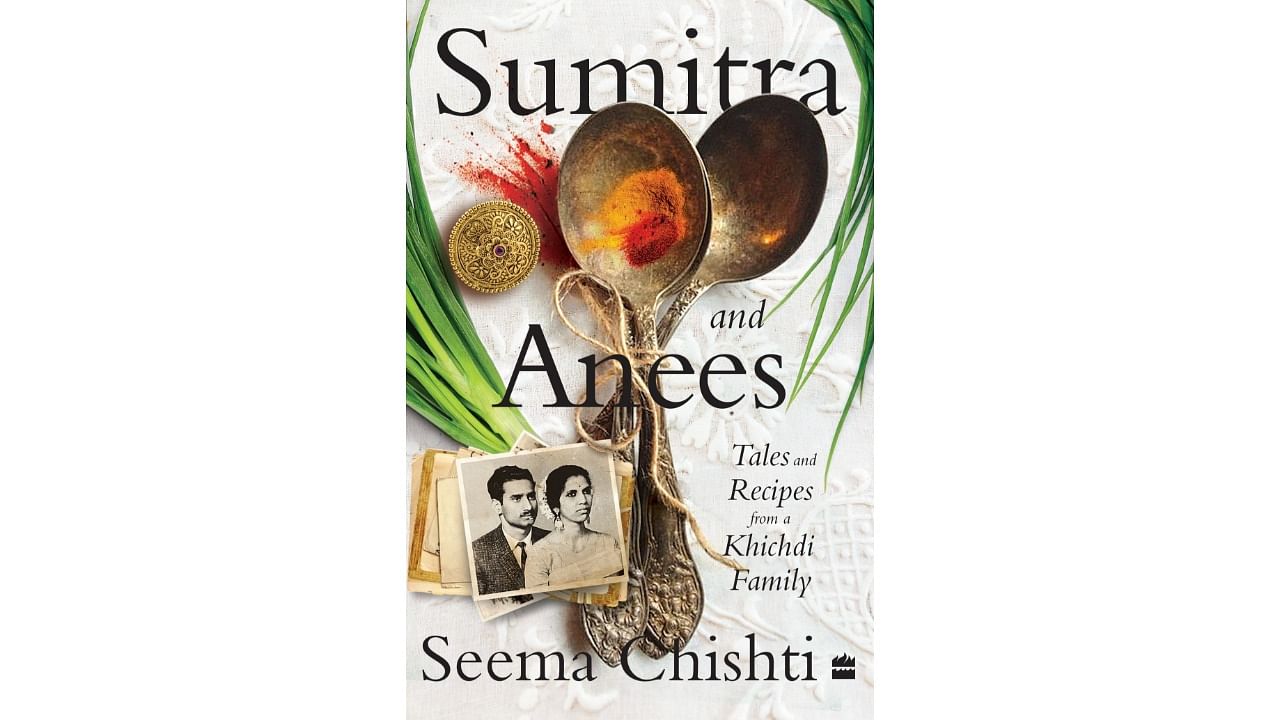
Journalist Seema Chisti hails from an inter-faith marriage—once seen as the hallmark of a diverse and pluralistic society. In these changing times, her debut novel, "Sumitra & Anees: Tales From A Khichdi Family," tells the story not only of her parents but also of an India that once was and still can be. Excerpts from a conversation.
What was it like growing up in a mixed home—your father being a Muslim from UP and your mother, a Hindu from Karnataka?
It was normal to me for the most part because that was my only reality. Those were different times; no one posed these questions, and I lived in a cosmopolitan city. It interested me that I didn't have 'a' culture, or prescribed systems or Gods.
I lived in a culturally rich house in terms of celebrating everything. Christmas was big, and so were Eid and Diwali. Also, both families were on good terms. While they may have initially wished for my parents to have married into their respective communities, they eventually came around. The world came into my home as it were, and we embraced that in a good way. Sure, there were moments of wondering who I was, but those were few and far between.
What was the impetus for writing this book? Was it something you always wanted to do?
My parents were very private people, and so am I. Anybody who knows me would be stunned I've put this out. My father died in 2018. The book wrote itself because of the times we live in—history is being distorted and rewritten. This book is a significant part of what was. It cannot be negated or scrapped. The impetus to do this is a political response rather than telling a romance.
The book also has recipes, notes from your father and other little elements that make it a hybrid piece of writing…
It's a bit of a scrapbook, yes. My mother had left behind a recipe book. She knew I was not concerned about cooking, but I'd probably need it someday. She was an excellent cook, having mastered the skills of her sasural (in-laws) and maika (mother's home).
She wanted this published. She was an accomplished economist and had many books published in that sphere, but this was something she wanted to be done. It's a regular cookbook, nothing fancy—in fact, it starts with plain rice. I also included the recipes because the food we eat is now under attack. The personal has become so political and vilified.
How did you document the rest of the book?
I'd forgotten that I was born of a Hindu-Muslim family, but a few years ago, when my father was still alive, some friends said it was very interesting. With their constant encouragement, I spoke to my father and recorded some interviews—around four to five. So, I always felt I'd do something with it; I didn't know what.
It all came to a head after the divisive UP election campaign in 2017 and his death. I also spoke to my maternal cousins in Bangalore and Mysore. I got specifics from my mother's family. I discovered notes posthumously written by my father. It was a very instinctive and organic process.
Are you expecting any negativity?
Broadly, I've got supportive feedback. Among people who have read it, it has touched a chord. These are people who knew the other world, and I've been very clear it's not nostalgia. It's about the possibilities of a world in India that can be. It's not meant to be an India that's gone away. It is important to tell a story very closely that goes against this modern-day rulebook that Muslims cannot marry Hindus. Civilization is about coexistence.
(Neeti Jaychander is a journalist, writer and lecturer based in Chennai.)